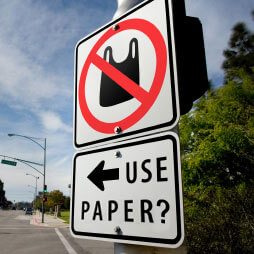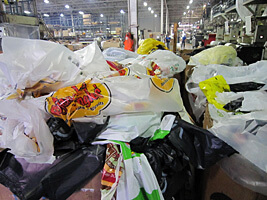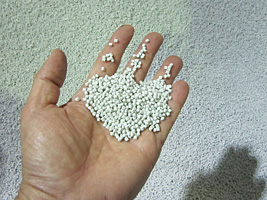
Whether we run businesses and/or families we are all concerned about how we utilize our natural and man-made resources. Nashville Wraps is responsible to over 100,000 independent retailers with regard to their packaging. So we have to ask: What’s going to happen when we ban plastic bags?
A few years ago that strong, thin and sort of crinkly plastic was thought to be a modern miracle product; now it seems to be the poster child for all the undesirable elements of our disposable society in general. Many would like to see us change… and we should. But a ban just to create a warm, fuzzy feeling that something was done may only end up making the problem many times worse.
If we have no plastic bags…then what?
Most ban legislation restricts retailers from distributing the thin PE bags with certain exceptions. The default alternatives written into legislation in communities who have banned plastics typically allows for the following:
- • Paper Bags
- • Any container/bag which is supplied by the retail consumer
- • In some rare cases plastic (or other) bags meeting a required thickness
- • Woven or Non-Woven “reusable bags”
Ironically both the typical reusable and even paper bags come with a heavier environmental impact.
What is a better solution?
Our industry (retail packaging), and those we serve (retailers) can do a better job of supporting reusable packaging.
While we see a trend towards reusable bags, many community representatives argue that reusable or compostable packaging is the best solution. But even today only a small percentage of consumers bring back those “reusable” bags as defined by most of the bans and few communities have composting capabilities. In my experience both business and government decisions which are in conflict with basic human nature are doomed to fail.
Chain stores and groceries would prefer customers to purchase “reusable” grocery bags which they make profit on as opposed to having to give away (any) bags for free. Even if you bring your own bags they do not have to provide you with free ones. But providing a paper bag or certainly an imported “reusable” bag is not the best environmental choice no matter how you measure it. So what is?
Recycling any form of packaging is the ultimate re-use of it. Recycling plastic bags is simply the easiest, cleanest, and cheapest form of recycling which also offers the lowest carbon footprint of any packaging material.
 I have literately taken armfuls of used plastic bags, tossed them into a bag recycling machine and in about 45 seconds, with no pollution of any kind and very little power, produced buckets full of ready-to-re-use polyethylene resin pellets. These pellets are the raw material of the plastic bag making process.
I have literately taken armfuls of used plastic bags, tossed them into a bag recycling machine and in about 45 seconds, with no pollution of any kind and very little power, produced buckets full of ready-to-re-use polyethylene resin pellets. These pellets are the raw material of the plastic bag making process.
 Any solution is going to require all of us as consumers and citizens to be committed to sound environmental solutions, but we want our efforts to make good sense. Recycling plastic bags is a no-brainer. The infrastructure is in place in many communities across the country and even with major retailers. Trends show that plastic recycling has increased over 300% in the last 4 years alone, so it is a viable consumer solution which people can adopt. I know, because I have, and so has my community and my company, Nashville Wraps.
Any solution is going to require all of us as consumers and citizens to be committed to sound environmental solutions, but we want our efforts to make good sense. Recycling plastic bags is a no-brainer. The infrastructure is in place in many communities across the country and even with major retailers. Trends show that plastic recycling has increased over 300% in the last 4 years alone, so it is a viable consumer solution which people can adopt. I know, because I have, and so has my community and my company, Nashville Wraps.
Robby Meadows
Nashville Wraps
Related Posts:
Recycled Plastic Bags from Trash
Reusable Shopping Bags – The Green Truth
The Ultimate Reusable Bag
Do your part to divert waste by using your own plastic waste to create your packaging.
On my blog I have a downloads menu item. If you click on that there are a number of papers that I have written that can be downloaded.
One paper titled “Negative Health and Environmental Impacts of Reusable Shopping Bags” deals with the health issues more extensively than you did in the article above. For example, in addition to bacteria, viruses and virus transmission with reusable shopping bags could make other sick. Also, people who have AIDS or a suppressed immune system may be more sensitive to bacteria in reusable bags then people who have normal immune systems. About 20% of the population fit in this category.
Also, when bag bans are implemented people always complain about all those plastic bags that end up in the
landfill. But they have never stopped to calculate all the stuff going into a landfill after a plastic carryout bag ban compared to before. It would surprise you to know that 3 to 4 times the amount of material goes into the landfill post ban than pre ban. Those plastic carryout bags are sure looking good. see my article titled “Fact Sheet – Landfill Impacts” for the details and the calculations.
There is much more.